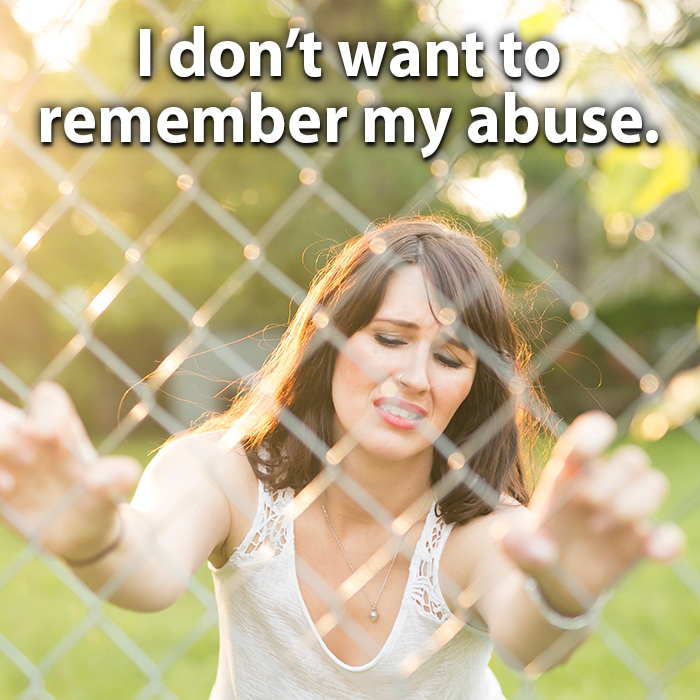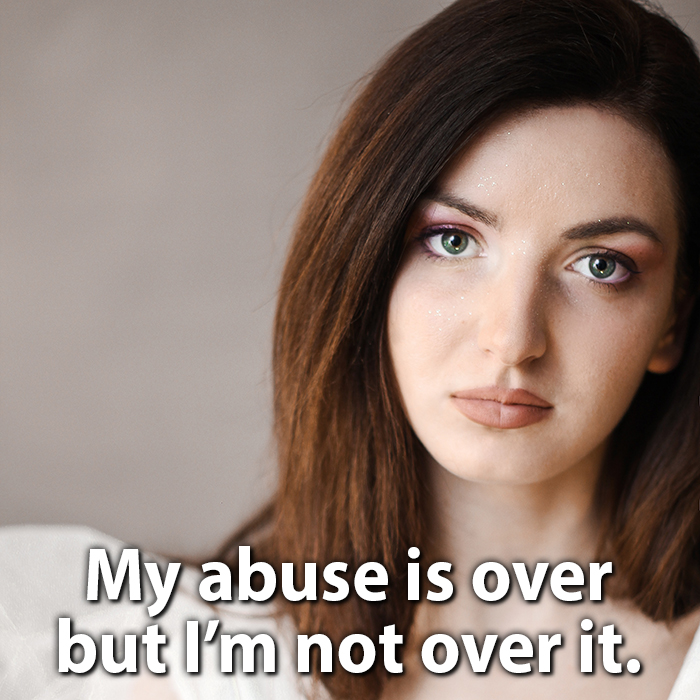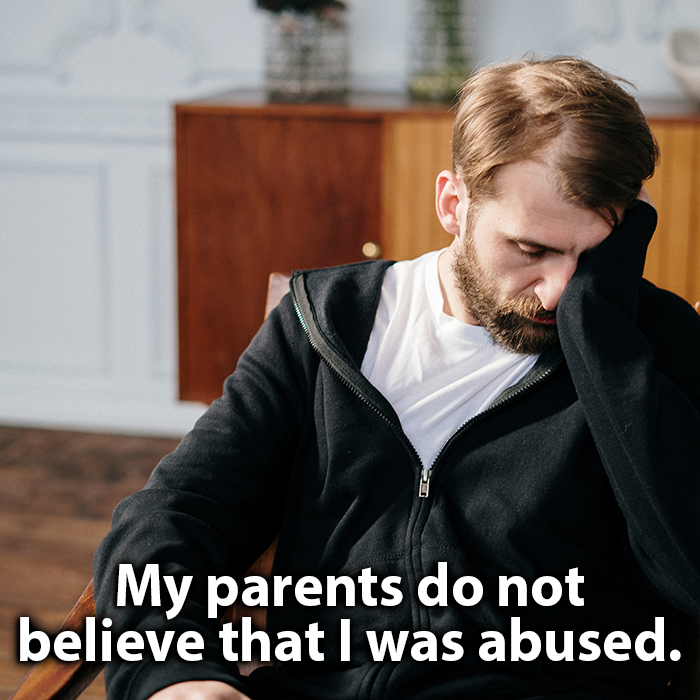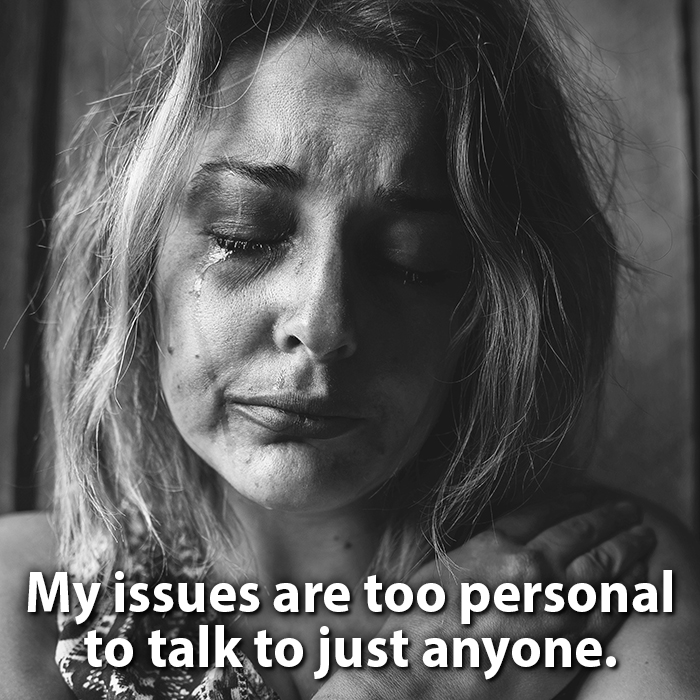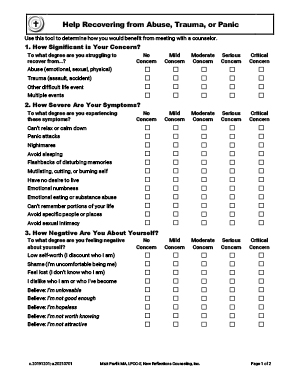HELP WITH TRAUMA RECOVERY
If you cannot seem to get over a significant event, do not blame and punish yourself. All human beings experience intense stress from events that involve serious injury, threat to personal safety, betrayal, or secondary trauma (witnessing others experience serious injury).
Normal stress reactions may include the following symptoms (this list is representative, not exhaustive):
- sadness
- irritability or anger
- over-sensitivity (easily startled)
- trouble concentrating
- trouble eating (or eating too much)
- trouble sleeping (or sleeping too much)
- a desire for isolation
- a constant state of anxiety
- emotional numbness; constantly thinking about the event OR constantly trying to avoid thinking about the event
- nightmares
- helpless feelings
- overwhelming feelings
Normal stress reactions generally decrease as time passes. If you experienced a traumatic event more than a month ago and are still experiencing these things, you may be suffering from Post-Traumatic Stress Disorder (PTSD).
Many types of traumatic events can result in PTSD: military combat, physical or sexual assault, serious accidents, childhood physical or sexual abuse, terrorist attacks, and natural disasters (fire, tornado, hurricane, flood, or earthquake). Not everyone who experiences an event like these will develop PTSD.
Whether or not you develop PTSD depends on many things including:
- the intensity of the trauma (or how long it lasted)
- the type and severity of injury sustained or threatened
- the number of times you have experienced a trauma
- the degree you felt in control or out of control during the event
- the type and extent of support that you received immediately after the event
Only a trained mental health professional can determine whether you have PTSD. Regardless of the clinical name for what you are experiencing, if you are suffering, help is available. If you have experienced a traumatic event and are having trouble dealing with it – if you simply cannot stop thinking about it, if you cannot “shake” the emotional impact of it, if you continue to live in fear, or if your life seems to be “on hold” or “stuck” because of the event – counseling can help.
Your caring, professional counselor can
- help you learn to manage and minimize the stress reaction,
- provide a safe, nonjudgmental environment for you to talk about what happened, and
- help you “process” the trauma and break free from the emotional or psychological hold that the event has on you.
Do you have significant emotional pain that is motivating you to seek help? Recognizing you have a problem is often half the battle. It’s okay if you aren’t excited about facing your pain, as long as you are determined to feel better and live with hope.
Sexual Assault
Law enforcement statistics indicate than one in every five women in America will be the victim of sexual assault in her lifetime. Chances are, if you are reading this, you are one of those women or you have a loved one who is. Sexual assault — whether stranger rape, date rape, gang rape, or marital rape — does not just violate a woman’s body… it violates her very being and it changes the way she experiences the world. Every aspect of her life may be touched in some way by the assault and she may fear that her life has been changed forever. Sexual assault victims often feel that they simply cannot “let go” of the assault no matter how hard they try or how much time has passed. They often find that they are irritable or angry “for no good reason”, that their relationships have become problematic, or that they simply do not enjoy life they way they used to. They often struggle with shame and guilt, and bombard themselves with unproductive (and even destructive) messages that “It was my fault”, “It wasn’t that bad”, “I should be over it by now”, or “I will never be ok again”.
If you have been sexually assaulted, the emotional, psychological, and spiritual impact can be overwhelming, but you don’t have to continue to suffer alone. There is help; there is healing; there is hope. A compassionate counselor can offer you a safe place to talk about what happened, assist you in working through the aftermath of the assault, and help you move toward the joyful life that your heart desires and that God desires for you.
Rape often results in a spiritual crisis of sorts where everything you once believed about God, yourself, and the world is called into question. You may be angry with God or may fear that God no longer loves you. Counseling can help you look at the spiritual issues as well as the psychological ones. It takes courage to reach out for help, but the reward for your courage is freedom from the suffering you have been enduring.
If someone you love has been sexually assaulted and you are frustrated by your inability to offer comfort or assistance, a counselor can help you understand what your loved one is going through, can help you process your own feelings about what has happened, and can offer you suggestions on how you can best offer support and assistance.
You Can Recover from Sexual Abuse
The problem of childhood sexual abuse is not new. Millions of adults bear the emotional scars, and continue to secretly carry the emotional burden, of abuse that occurred twenty, thirty, or even forty years ago. Clients frequently come to counseling and say, “This happened so many years ago and I have never told this to anyone.”
Abuse Can Result in Psychological, Emotional, and Spiritual Wounds
Many people who were abused as children struggle with spiritual issues as well as psychological and emotional ones. They may question how a loving God could allow something like that to happen to a child, may be angry with God for allowing it to happen, or may even believe that God intentionally inflicted the abuse on them as punishment.
Part of the healing journey may include looking at these spiritual questions and finding a deeper spiritual understanding of yourself, God, and the world. A history of childhood sexual abuse does not automatically mean a life full of suffering. The extent to which abuse effects an individual varies significantly depending on the severity of the abuse, the duration of the abuse, and the relational context of the abuse (who the abuser was).
The Effects of Abuse Last Until They are Treated
Children are, by nature, innocent, trusting, and vulnerable. When a child is abused, the abuse is never the child’s fault, but children — in an attempt to use their limited understanding of the world to make sense of what has happened to them — almost always believe that they either caused or deserved the abuse. Many of them carry their misguided sense of shame and guilt into adulthood. Many successful, seemingly well-adjusted adults continue to suffer the far-reaching effects of abuse: low self-esteem or lack of confidence, difficulty trusting others, isolation, or alienation, depression, anxiety, anger, chronic relationship problems, difficulty with emotional or physical intimacy, promiscuity, self-injury, alcohol or drug use, or overeating.
Counseling Helps You Recovery From the Trauma and Reclaim Your Life
Regardless of how childhood abuse has affected your life, you can experience both healing from your past and growth for your future. If you have been silently suffering the pain or shame of past abuse, then professional, confidential therapy with a caring counselor can help you find freedom and relief. If painful memories from the past are robbing you of a life of happiness and meaningful relationships, counseling can help you face the past, find healing in the present, and claim abundant life for your future.
Sexual Abuse’s Impact on Marriage
Sexual abuse can affect a marriage is so many ways: emotionally, spiritually and sexually. Sexual abuse is traumatic not only for the survivor but also for the survivor's spouse if he/she does not understand the impact of sexual abuse.
Restoring sexual functioning in marriage is a significant part of the healing process. Having a healthy sex life after being sexually abused can happen. Separating the abuser from someone who loves you is a part of healing. Un-training yourself from what your abuser taught you is what it takes to make this happen. Your body is your body and you have the say in what does or does not happen.
Marriage is already the most difficult relationship to pursue. Fortunately, marriage also has the greatest potential of all relationships. Pursuing healing to have a better marriage is worth the effort.
Do you see yourself as God sees you? God sees you as a child He made for a specific purpose. Not one of those purposes was for any one of His children to be abused in any way, shape, or form. Reach out to Him and let him replace your pain with joy, your shame with sharing, your anger with forgiveness, your ugliness with beauty and your silence with your voice.
If you are ready to start your recovery, contact us to schedule an appointment and bring this evaluation with you to your first appointment.
Life can be harsh sometimes. We want you to be able to grieve your losses and regain your strength so you can pursue God’s plans for your life.
Whatever traumatic experience(s) you have had in your life, the experience does not have to define, control, or ruin your life. There is help and there is hope.
